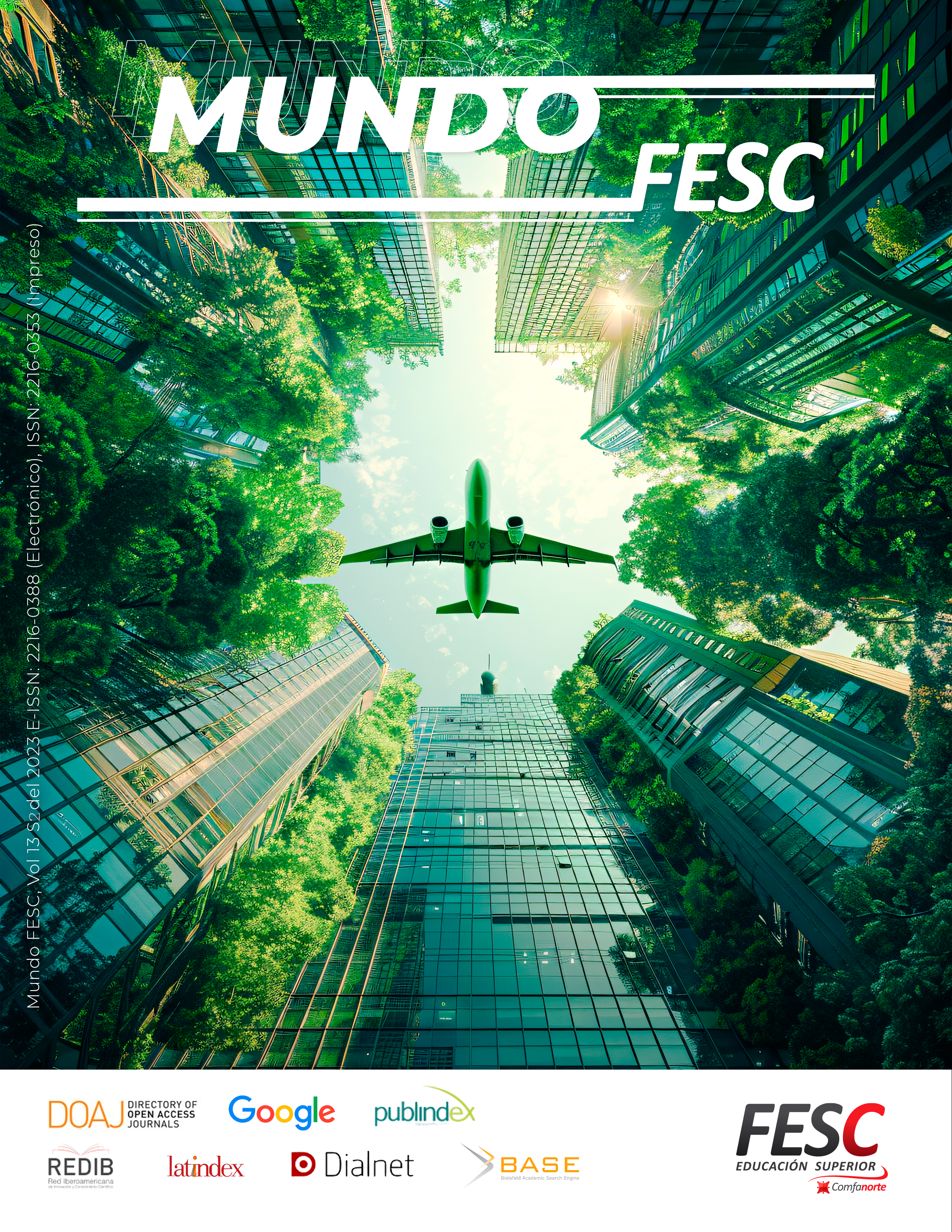Narrativas emergentes: uso de las redes sociales y vivencias digitales en el ámbito educativo
DOI:
https://doi.org/10.61799/2216-0388.1655Palabras clave:
Homofilia, Redes Sociales, Narrativas Emergentes, ÁmbitoResumen
En el contexto educativo, las redes sociales se han convertido en herramientas digitales pedagógicas, didácticas, etéreas, comunicativas, interactivas y de conexión entre personas con intereses comunes, ganando cada vez más protagonismo en las aulas como parte de las prácticas pedagógicas de los docentes, de manera ubicua y colaborativa. Este estudio de investigación tuvo como objetivo explorar las percepciones y experiencias digitales que tanto docentes como estudiantes tienen sobre el uso de las redes sociales. Se revisaron las contribuciones de autores influyentes como Lavado, González, Forero, Pérez y Jarque, quienes realizaron importantes aportes al uso de las redes sociales en el ámbito educativo. Asimismo, se consideraron las perspectivas de entidades internacionales como la Organización para la Cooperación y el Desarrollo Económicos (OCDE), el Banco Mundial y los Objetivos de Desarrollo Sostenible (ODS), que aportan una visión global de los procesos de enseñanza y aprendizaje. El estudio comenzó con abordar el problema central, para ello, se aplicó el instrumento de la observación realizada en el aula durante el año 2023. Posteriormente, se llevó a cabo una entrevista semiestructurada. En el proceso de análisis de la información fue realizada a través de la triangulación de datos. Se empleó un enfoque fenomenológico, involucrando a docentes y estudiantes de una institución pública de Cúcuta. Los hallazgos revelaron tres narrativas emergentes que surgieron de la interpretación de las diferentes perspectivas de los docentes y estudiantes, destacando que las redes sociales actúan como un medio de comunicación sin barreras geográficas o demográficas. Se identificaron dos aspectos importantes en el proceso de inmersión académica: narrativas emergentes favorables y narrativas emergentes desafiantes. Como conclusión, se determinó que las narrativas emergentes sobre el uso de las redes sociales son efímeras y están en constante evolución en la labor docente contribuyendo de manera significativa a la formación digital de niños, niñas y jóvenes dentro de la comunidad educativa.
Descargas
Referencias
OECD (2022), Trends Shaping Education 2022, http://www.oecd.org/edu/trends-shaping-education22187049.htm
Chambilla Pari, Y. R., Puma Camargo, M. I., & Bejar Ramos, C. (2023). Redes sociales y las habilidades sociales de los estudiantes de una Institución Educativa de nivel secundario de la ciudad de Puerto Maldonado. Ciencia Latina Revista Científica Multidisciplinar, 7(1), 7324-7335. https://doi.org/10.37811/cl_rcm.v7i1.4965 DOI: https://doi.org/10.37811/cl_rcm.v7i1.4965
Aprendemos juntos V. Completa. (07 octubre 2020) Las claves educativas en la era de la inteligencia artificial. Kai-Fu Lee, experto IA. [Video]. YouTube. https://www.youtube.com/watch?v=18QBF0LifbY
Landeta Bejarano, Z., Salamea Limones, V., & Montecé Mosquera, F. (2020). Redes Sociales y Periodismo Ciudadano: Investigación Documental. Journal of Science and Research, 5(1), 149–164. Recuperado a partir de https://revistas.utb.edu.ec/index.php/sr/article/view/761 http://doi.org/10.5281/zenodo.3599276
Unir Revista (2020). El uso de las redes sociales en educación: consideraciones para sacarle el máximo partido. Universidad de la Rioja. https://www.unir.net/educacion/revista/redes-sociales-educacion
De Haro, J. J. (2009). Las redes sociales aplicadas a la práctica docente. Didáctica, innovación y multimedia, (13), 000-0.
Naciones Unidas. (2015). Objetivos de Desarrollo Sostenible. Recuperado de https://www.un.org/sustainabledevelopment/es/
Banco Mundial. (2023). Educación. https://www.bancomundial.org/es/topic/education/overview#2
Urquilla Castaneda, A. (2023). Un viaje hacia la inteligencia artificial en la educación. Realidad Y Reflexión, (56), 121–136. https://doi.org/10.5377/ryr.v1i56.15776 DOI: https://doi.org/10.5377/ryr.v1i56.15776
Lavado Cruzado, C. A. (2022). Uso de redes sociales en el aprendizaje colaborativo en estudiantes de una universidad privada de Lima Norte-2021. Tesis doctoral. Universidad Norte, Perú. https://repositorio.ucv.edu.pe/bitstream/handle/20.500.12692/81999/Lavado_CCA-SD.pdf
González Hernández, M. (2015). Las redes sociales y su incidencia en la forma en que los jóvenes se comunican y utilizan la lengua. Perspectiva de los docentes de lenguaje y comunicación. Tesis doctoral. Universidad de Chile. https://repositorio.uchile.cl/handle/2250/136443
Forero Arango, X. (2022). Diseño e implementación de un Modelo Pedagógico para el Aprendizaje en red, que oriente los programas de pregrado en modalidad virtual de la Facultad de Comunicaciones y Filología de la Universidad de Antioquia [Tesis doctoral]. Universidad de Antioquia, Medellín, Colombia.
Pérez, L. F. F. (2023). El uso de las redes sociales como herramienta mediadora para la enseñanza de la lectura en los estudiantes de grado quinto de la IE Luis Carlos Galán Sarmiento del municipio de Yopal Casanare-Colombia (Tesis doctoral).
Jarque- Patiño., Y. A (2019). Construcción del conocimiento desde la red social Facebook en educación universitaria. [Tesis doctoral]. Universidad Pedagógica Experimental Libertador Instituto Pedagógico de Caracas. Venezuela. https://espacio-digital.upel.edu.ve/index.php/TD/article/view/481/459
Vizcaíno-Verdú, A., Bonilla del Río, M., & Ibarra-Rius, N. (2021). Cultura participativa, fandom y narrativas emergentes en redes sociales. Cultura participativa, fandom y narrativas emergentes en redes sociales, 1-980.
Strauss, A. y Corbin, J. (2002) Bases de la investigación cualitativa. Técnicas y procedimientos para desarrollar la teoría fundamentada. Colombia: Colección Contus
Husserl, E. (2008). La crisis de las ciencias europeas y la fenomenología trascendental. Buenos Aires: Prometeo libros
Congreso de Colombia. (2012). Ley 1581 de 2012 por la cual se dictan disposiciones generales para la protección de datos personales.
Congreso de Colombia. (2000). Ley 594 de 2000 por medio de la cual se dicta la Ley General de Archivos.
Descargas
Publicado
Número
Sección
Licencia
Derechos de autor 2023 Mundo FESC

Esta obra está bajo una licencia internacional Creative Commons Atribución-NoComercial 4.0.






